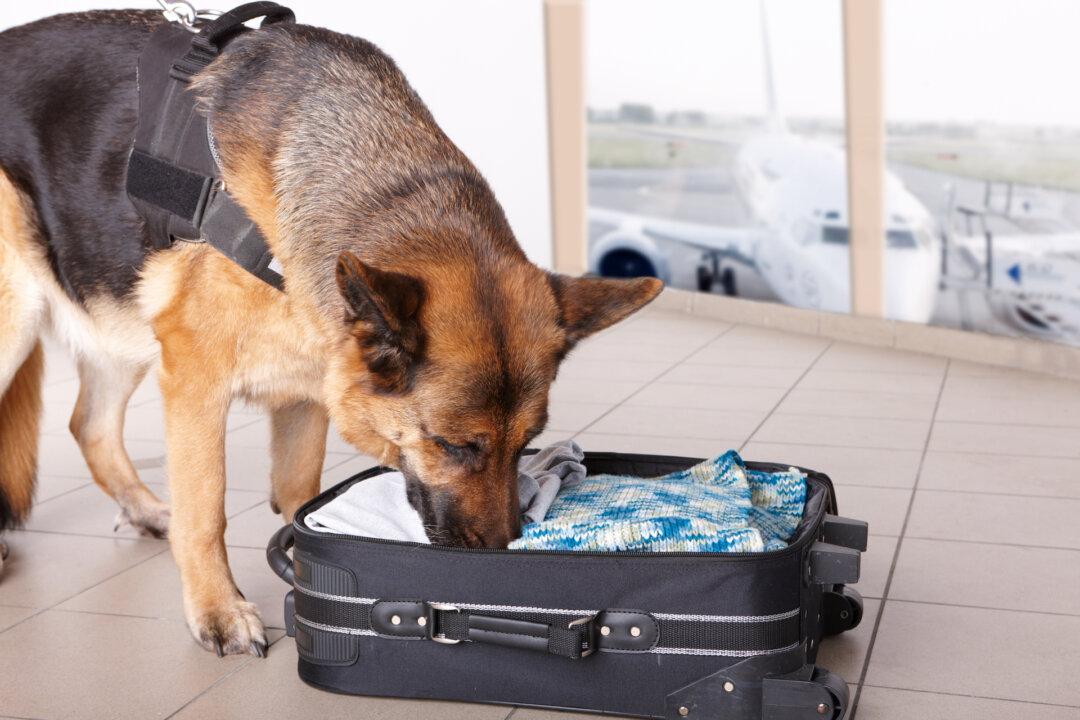Q: I’m training my dog Roger for search and rescue, which requires him to use his nose. I noticed while I was taking a particular medication that my sense of smell worsened. Can the same thing happen to dogs? If so, what drugs affect their sense of smell?
A: A dog’s nose has more than 300 million olfactory receptors that detect scent, while humans have only 400. Is it any wonder dogs are so good at scent work?





